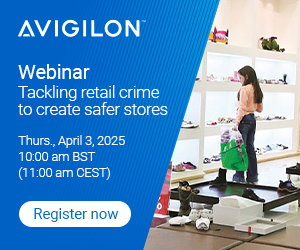designing out crime
EU launches offensive on organised crime
The EU has launched an educational offensive to explain the dangers of organised crime – what it is and how to tackle it - to millions of citizens.
Using a short film on its website - http://ec.europa.eu/dgs/home-affairs/what-we-do/policies/organized-crime-and-human-trafficking/index_en.htm - the EU highlights the fact that organised crime is a threat to European citizens, businesses, state institutions as well as the economy as a whole.
The reasoning behind the campaign is the fact that criminals easily operate across borders, which creates a need for consistent European–level action.
It explains that the EU continuously adapts its response in relation to the growing complexity of the situation. This is also reflected in the development of specialised EU agencies, such as Europol, Eurojust and CEPOL and their response to crimes including human trafficking, cyber-crime and financial phishing attacks.
The answer, the EU, argues, is going after the criminals’ money and disrupting and closing down financial crime operations including tax fraud, identity theft, counterfeiting, money laundering and outright corruption.
The ratification of the United Nations' Convention against Corruption has been a further step towards a more coherent EU anti-corruption policy, it says, but more needs to be done to ensure effective cooperation between EU States' authorities, in particular on preventing crime by effectively freezing, confiscating and recovering proceeds of crime. Actions also entail promoting EU-wide standards on financial investigations, which includes making more frequent use of joint investigation teams.
The campaign says that counterfeiting and infringements of intellectual property rights are becoming increasingly widespread. They now include commodity goods and pharmaceuticals, which not only hurt legitimate commercial interests, but also put the health and safety of European consumers at risk. This profitable business is generating income that can compete with drugs and firearms trafficking, but at a much lower risk.
In addition, the EU’s action to fight drugs is closely connected to the fight against organised crime and to the high level protection of health. Organised crime groups make considerable profits from trafficking illegal drugs (up to €230 billion a year). To contribute to countering this threat, the EU has developed a comprehensive Drugs Strategy which is implemented through an EU Action Plan.
The EU also increasingly cooperates on crime trends that dominate the political agenda, such as piracy on the high seas or trafficking in stolen cars, and continues to tackle existing challenges, such as violence in sports or trafficking in cultural heritage.
Operational activities, such as pursuing and prosecuting criminals, remain the responsibility of EU States, but the Commission’s objective is to assist EU States in fighting organised crime more effectively.






